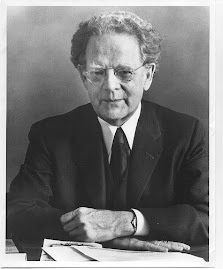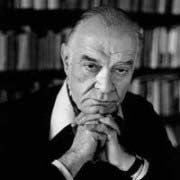
I would like to present, out of this wide set of issues, a focused question: what would Plato say about realism in literature?
The emergence of good stories about real people seems to be a common concern for our theorists. Auerbach frames it in terms of the classical separation of styles, which corresponds to tragedy and comedy. He claims that for a classical Greek or Roman writer, the labors of ordinary people were seen as material unfit for serious, high, tragic drama. He claims that the possibility for drama about common people was not realized until the Jesus narratives. For the ancients, the labors of ordinary people were suitable only for comedy.
Interesting things come to light when this framework is placed next to Plato's critique of tragedy. First, it seems that Plato is worried that the tragic tales, even when they are about the gods and heroes, are all to applicable to the lives of ordinary people. Further, though I guess Plato was a kind of leveling humanistic thinker, I take it that he would not have been happy with a modern story that achieved a (high) serious tragic tale of real people.
I cannot resist saying a bit more. There are, then, two related issues. First, one concerning character and the representation of "real" people. Second, the construction of a narrative that unites tragedy and comedy.
Many lines of thought branch out from this frame. Would you care to trace one out?






1 comment:
Actually, your comments suggest an interesting reflection on Girard’s chapter ‘Men Become Gods in the Eyes of Each Other.’ In that chapter, all hell breaks loose when men lose their belief in God and stop seeking to imitate or reach the divine. Pridefully renouncing our belief in God, this need for transcendence and our awareness of our own lack of self-sufficiency mean we turn to other people to imitate.
Could the existence of the novel reflect this new interest in our neighbor? Does the novel presuppose the death of God, with its fixation on ‘ordinary’ people?
On further reflection, Girard could say that any representation of God is idolatry. So a properly non-anthropomorphic God means God cannot figure as any kind of character in literature. A properly Christian attitude means ordinary people are the only available subjects of literature.
On the other hand, from our modern point of view, the Greek gods are basically ordinary people, with a bit of Saturday morning cartoon superpowers thrown in. And what do these superpowers add anyway? Is the modern novel pretty much a revivification of Greek and Roman concerns and not some great break with the past? The Gods are there to be adored and imitated – that’s their whole point; imitation is the sincerest form of flattery. So Plato should certainly be concerned that they offer models for human behavior.
Plato’s own dialogs depict human drama of high seriousness. The death of Socrates is ‘high’ if ambiguously tragic. Human choices and the state of our souls are taken to be the most important topics we could possibly discuss. I can’t help thinking Plato would approve of Dostoevsky; but ‘American Psycho’ not.
Post a Comment